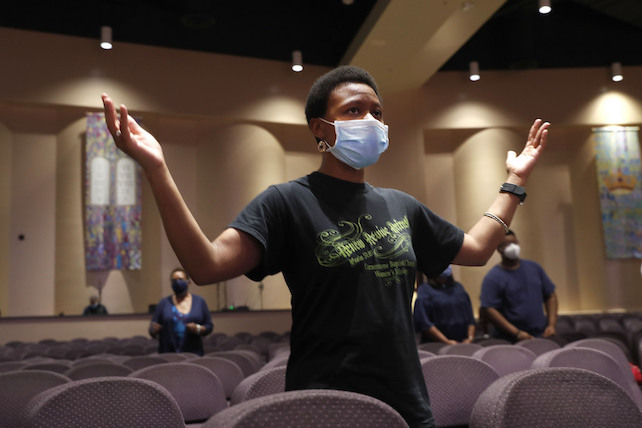When newcomers visit your small group for the first time, they come with all sorts of questions: “Will we like it?”, “Will we connect with the people there?”, “Will this be helpful for us?” It can be intimidating for people entering a small group dynamic because they don’t know how they’ll be received, if they’ll feel like they ‘fit’, and if they’ll want to return.
Most people feel less than relaxed entering a new social situation with new people. There are things that you can do as the small group leader to help ease any tension newcomers may be feeling and help them feel more ‘at home’ whether your group meets in-person or online. Here are eight practices to help them feel more comfortable, received, and accepted in your small group:
1) Warmly welcome newcomers into your small group. Learn a little about them as you greet them and do your best to remember facts they share about who they are, names and ages of their kids, and how they found your small group. On this note, one of most simple and powerful ways of helping a newcomer feel ‘at home’ in your small group is to call them by their first name each time you refer to them.
2) Don’t over-focus on them. Most guests like to be acknowledged – they just do not like to stand out or be spotlighted before the whole group. If you keep things normal, your small group will feel more natural and comfortable to newcomers.
3) Don’t over-accommodate. Just be yourself and allow your small group to be itself. For example, don’t hesitate to pray or worship if newcomers are present. (Sometimes this is exactly what God uses to gather spiritually-unconvinced people to Himself – see Acts 2:46-47.) If somebody needs prayer, pray for them. If you are going to worship, just do it. Don’t attempt to explain it for newcomers. They want to see things how they really are and would rather not have you disrupt the flow of what you do on their account.
4) Help newcomers get to know a few others in your small group. The more a newcomer senses a possible connection with your group members, the more likely it is they will want to return. The likelihood of first-time guests returning increases dramatically if they experience a sense of belonging through their connection with others. This can be cultivated by highlighting things the newcomer holds in common with other small group members and timely follow-up.
5) Find out what subjects your guests have an enthusiasm or expertise in and talk about that! People like to talk about things they know about. Newcomers will feel more empowered and comfortable talking about the things of interest to them. If you listen with interest, you will show that you are interested in them as a person and they will not feel like a project.
6) When you have newcomers, leave plenty of time for people to socialize at the tail-end of your group. First-time guests will probably feel inclined to be more personal toward the end of a small group meeting rather than at the beginning.This will give time to introduce your small group members to guests and have relaxed conversations.
7) Be sure to thank your new guests for being with you at the end of your meeting time. Let them know it was great having them and you’d love to have them come back. If they participated in the conversation, tell them you appreciated their input and insights. Offer to connect with them briefly before your next meeting and be sure you relay your contact info.
8) Follow-up with newcomers before your next meeting to let them know you hope to see them again. Sometimes small group leaders hold off from following up in this way because they’re afraid of being intrusive or coming across as pushy. However, guests appreciate this act of kindness and it makes your small group more welcoming overall. If you do not risk the remote possibility of coming across as intrusive in your follow-up, newcomers may feel like they are intruding.
As you model these practices, you’ll not only help newcomers feel like they belong, but you’ll build a welcoming culture in your group that will inspire your small group members to be more invitational. This will ensure that your group doesn’t turn inward on itself, but grows in health and makes a greater impact for God’s Kingdom.
This article originally appeared here.















